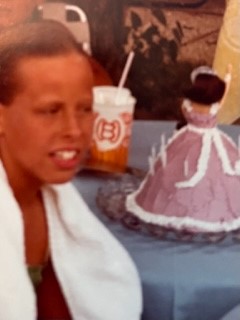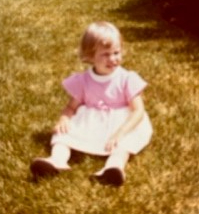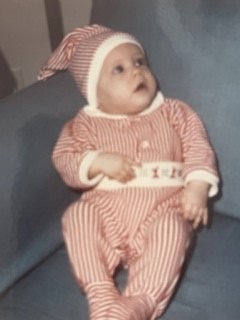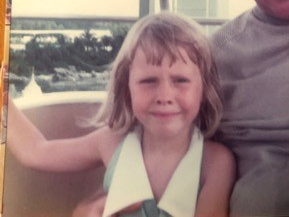July has traditionally been hard because it is the month of my birth. The unease begins shortly after the 4th of July, builds until the 28th and then on the 29th,I feel immense relief because I survived another one.
I am an adoptee, and it is only in the past few years that I’ve explored why my birthday bothers me and what it means to me to be an adoptee. I’m filled with such angst when I’m asked, “what do you want for your birthday?” or “what do you want to do on your special day?” You see, for me there is nothing special about the day because I know nothing about my birth or the 3 ½ weeks after. It’s a day of nothing – no stories, no information, nada. It is a day that feels empty and sad to me.
I don’t know if my mother held me, if she saw me, if she was sad giving me away. I don’t know who cared for me in the 3 ½ weeks before I was placed for adoption. Did they answer my cries for my mother, my need for food or to be changed in a timely manner? I’ll never know. My birth was not celebrated. The first 3 ½ weeks of my life are blank.
The first story about me centers around my older brother, my parents’ biological child, which happened on the day they brought me home from the adoption agency. Apparently, they stopped at the grocery store to buy a cake to celebrate with neighbors. My adoption story goes something like this, “as soon as we got home, your 2.5-year-old brother told everyone we bought the baby at the grocery store. Isn’t that the cutest?” I used to share this story since it was all I had saying, “how sweet.” Now I cringe because I see how sad it is that I know nothing about my birthday. This story cemented my existence in the family as a doll, a product – not a person with a whole history that was erased when my birth certificate was changed.
For decades I acted like the poster child for adoption, parroting out the lines, “I’m so lucky and my mother loved me so much she gave me up for adoption! No, I don’t want to find my bio family. My family is all I need! I am just fine!” If I was an actress, I’d get an Oscar for my role as a good little adoptee. I always put my parents’ feelings first – all of them. I swallowed down any discomfort or unnamed shame and chalked it up to some defect in me. After all, my first mom didn’t want to keep me, so there must be something wrong with me.
Adoption is complicated. We adoptees speak up about the challenges we face, and the world at large tells us we are difficult, unlovable, the problem, damaged goods. It must be our “bad blood.” The evidence, we are told, is in the fact that our mothers gave us away. We should shut up and be grateful. After all, look at how much better our lives are because of adoption. The adoptive parents’ savior story is the only one society makes room for. No one really wants to hear our truth.
I’m not going to air dirty laundry, but I am going to share this. Each year until I was 21 years old, my mom made me a doll cake. It was a tradition. Dolls were never really my thing beyond around 8 years old. Mostly, I wanted to be outside in the trees, riding bikes, getting dirty, playing with friends, running in the woods. My mom collected dolls for me, baked doll cakes, bought me dresses, dance lessons, and tried hard to turn me into something she wanted me to be – a girly girl. I was, after all, a blank slate and the adoption agency said that because I was an infant, they could turn me into whatever they wanted me to be.
I came to resent the doll cakes. I could pick the color of the dress, while my brother could pick whatever theme he wanted for his birthday cake, and my mom would go all out – a monster, a mountain, whatever he imagined. When I asked for a different kind of cake, I was told that I got doll cakes. End of discussion. I understand that my mom was just giving me what she wanted. She never had doll cakes, fancy dresses, or dance lessons.
Doll cakes aside, my birthday carries the shadow of loss. The unspoken truth is that I was born and immediately separated from my biological roots. It is a groundlessness, that I didn’t quite understand until my own boys were born.
As I write, I feel myself starting to make my feelings smaller and easier to digest – to make sure my parents don’t sound “bad,” to make more space for my parents’ feelings, or for my friends who have adopted children. I was conditioned to do this, to push my feelings aside for everyone else’s feelings because there was the fear that if I made them unhappy, I could be given back. Self-silencing is the curse of an adopted child. We work so hard to please, to adapt, to fit in, that we bottle up our feelings and swallow them like a bitter pill.
This year, I’m looking to celebrate my birthday in a way that feels authentic to me – one that honors the loss and the nothingness, yet also makes space for the love, joy and connection I’ve created in my life. While my life may have started from a place of nothing, I’ve constructed a life filled with many blessings.






